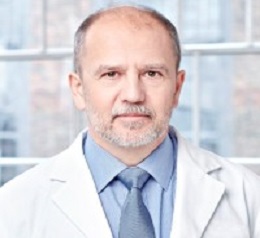Scholars International Webinar on
Cancer Research and Therapeutics
THEME: "Current Perspectives and New Challenges in Cancer Research and Therapy"
 23-24 Nov 2021
23-24 Nov 2021  ONLINE & VIRTUAL
ONLINE & VIRTUAL THEME: "Current Perspectives and New Challenges in Cancer Research and Therapy"
 23-24 Nov 2021
23-24 Nov 2021  ONLINE & VIRTUAL
ONLINE & VIRTUAL 
HYD LLC for Cancer Research and Drug Development, Budapest, Hungary
Title: Hydrogen/deuterium ratio is the key regulator of cell proliferation
Gábor Somlyai graduated as a biologist at the University of Szeged in 1982. Between 1982 és 1990 he worked for the Plant Protection Institute, from 1983 to 1986 he had a scholarship of the Hungarian Academy of Sciences as a postgraduate student for obtaining PhD. In 1988 he defended his thesis in molecular biology. In the same year dr. Somlyai spent 6 months at the Georg-August University in Göttingen with a DFG scholarship and from the end of 1988 he held a postdoctoral fellowship at the University of Missouri. In 1990, - dr. Somlyai started his research, examining the biological importance of naturally occurring deuterium, as a senior research fellow at the Hungarian Institute of Oncology. In 1993, he established HYD Ltd. to carry out anticancer research and drug development based on the proprietary procedure, deuterium depletion and to start drug registration. Since 1997 he is the CEO of the company
The concentration of deuterium (D) is about 150 ppm (over 16 mM/L) in surface waters and 12-14 mM/L in living organisms, which is clearly a biologically relevant element considering that the concentration of the circulating Ca2+ is only 2.24-2.74 mM/L. To reveal the possible role of naturally occurring D in living organisms, normal tap water was replaced with deuterium-depleted water (DDW) in a range of 25 ppm and 135 ppm and investigated in cell cultures, animal studies, as well as in prospective blinded and retrospective clinical trials. DDW inhibited cell growth of multiple cancer cell lines in vitro and readily induced tumor xenograft regression in mice. Double blind, controlled, human Phase II clinical trial with prostate cancer exhibited a significant difference between the control (n=22) and DDW treated (n=22) patients with respect to end point parameters and confirmed significant antitumor efficacies. Retrospective clinical studies also confirmed that DDW consumption results 3-7- fold increase of median survival time and reduces relapse rate. The key signal to stimulate cell division is probably the increasing D/H ratio, which in turn is the consequence of selective elimination of the light hydrogen by the Na+/H+ antiport after binding of growth hormone to its receptor, result in increased, more alkaline intracellular pH. Indeed, higher than natural D-concentration (300-600 ppm) was found to stimulate cell growth. The likely mechanism of the anticancer effect of deuterium depletion is an increased proton export from the matrix to the intermembrane space of mitochondria, resulting in increased mitochondrial membrane potential, and enhanced production of reactive oxygen species (ROS). In summary, we suppose the membrane transport activity leads to modified D/H ratio and this change triggers distinct molecular processes. Our studies revealed that the changing D/H ratio simultaneously and strongly modifies the expression of hundreds of genes having roles in cell cycle regulation.